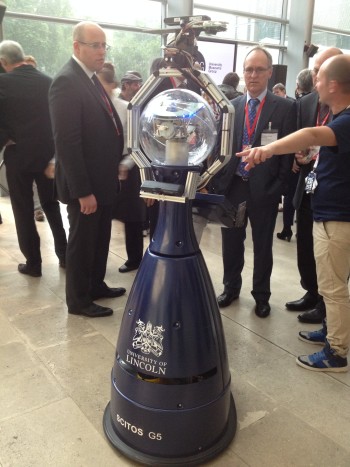Cutting-edge robots developed by academics at the University of Lincoln could help elderly people enjoy a higher quality of life.

An international project involving robots developed by the University’s Centre for Autonomous Systems will be tested to see if they would be suitable for elderly care homes.
Robots will be installed into homes for the elderly in Greece, Poland, and the UK.
The robots will be installed into smart homes, which are equipped with technology specifically designed to assist in the monitoring of the elderly.
Principal Investigator Dr Nicola Bellotto, from the University of Lincoln, said: “This will be of particular benefit to those people who have mild cognitive impairments, for example older people who are still physically healthy but may have early symptoms of dementia.”
“The system will build on recent advances in mobile service robotics and ambient assisted living to help people improve health and wellbeing. From a technological point of view, there will be an intelligent interactive robot that is integrated with a smart home, communicating with a network of care givers and relatives.”
The project will be known as ENRICHME, the Enabling Robot and assisted living environment for Care and Healthy Monitoring of the Elderly.
It will be equipped to monitor changes in mood from people to help detect emergencies.
Dr Bellotto added: “If the robot detects that the mood of a person is particularly low, it might suggest some kind of game or interaction with relatives.”
“It could record information on how the mood changes and provide professional staff with feedback over a period of time, which would be very useful when studying the evolution of particular cognitive impairments.”
The robots are even more astonishing with their ability to recognise different people, and are even able to adapt their care over time based on the needs of the person they are caring for.
ENRICHME could assist with further research into the social sciences and neuropsychology in the future.
The project has been funded by a €4million grant from EU research programme Horizon 2020, with €540,000 having been used to fund research happening at the University of Lincoln.

